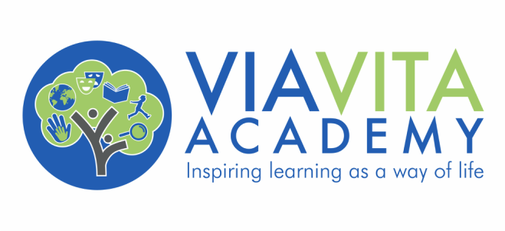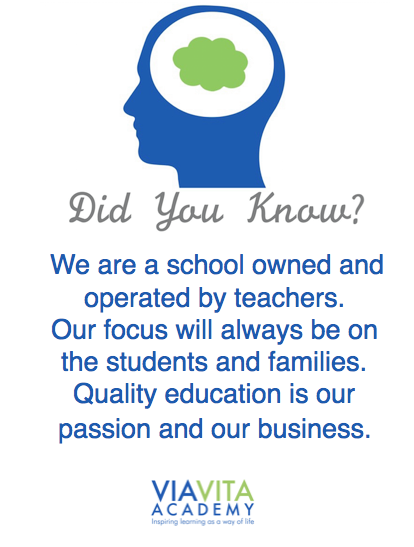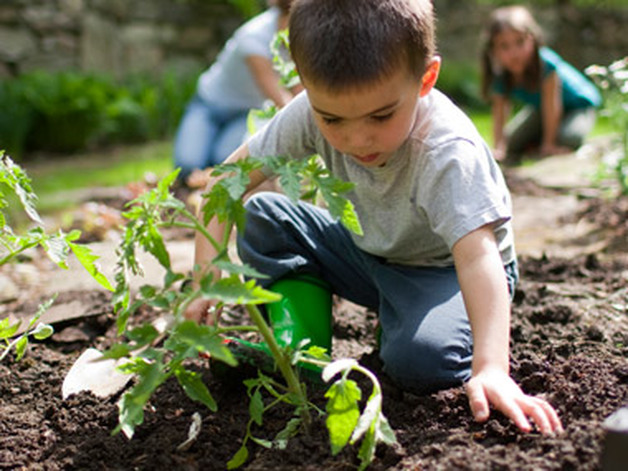|
We learn best when we're awake, ready, welcomed, and encouraged. When we can breathe, relax, organize our thoughts, and connect to something real. We learn best when we can ask questions, use real life examples. We learn best when we can actually experience life and living - when we move freely and express our uniqueness!
These reasons are why we believe in outdoor education. It gives school learning, which is so often connected with sitting at a desk inside a classroom, a much-needed and long overdue breath of fresh air. If we want our children to be successful in an ever-changing, fast-paced, environmentally sensitive and diverse world, we really should be rethinking what schooling looks like. Sitting at a desk all day crunching meaningless algorithms and writing about the weather while you're sitting inside is hardly connecting our students to the world they will grow up in, and someday be the leaders in! Here's just a sampling of benefits of taking the classroom outside: 8 Benefits of Learning Outside 1. Creativity Bright colours, crisp lines, and everything moving, changing, adapting, and living to liven up the senses we use to learn! The natural world we live in can refresh our view, open up our natural senses that enable us to create, listen, and explore. Being outside can inspire new perspectives on familiar topics, giving something we thought we knew or completely understood a fresh new look. It can bring a critical eye (or ear, or nose!) to whatever topic is being explored and inspire innovative, imaginative, and creative juices to flow. It sparks the imagination and keeps it flowing. How can a room with 4 walls, no matter how brightly lit up and decorated, compare? 2. Physical Activity Wide open spaces. Free to move, to wiggle, to fidget, to twiddle or tap. To feel the Earth beneath your feet while feeling the wind on your face is enough to keep you awake, engaged, and energized. No need to use stationary bikes to get your energy out, or handheld devices to capture our attention or entertain our fidgeting hands that are just bursting to dig into something. Just get outside! 3. Calm Mind The quiet call of a bird in a forest. The wind rustling through the leaves. The water stream rushing over the rocks. You can buy these sounds on iTunes to get in touch with your inner self, calm the mind, or focus for study time. However, you could also simply go outside and save a few bucks. The effects of the sounds of nature are obviously soothing and relaxing, and they can allow our minds to calm and refocus. Reading a book, writing a story, drawing a sketch, solving a math problem, mapping out ideas – whatever it is that could be done quietly at a desk can easily be taken outside, and not only calm the mind, but also strengthen the ability to focus. 4. Natural Curiosity Why is the sky blue? What is this plant called? Why does this bug look like that? What’s that sound? What’s over there? The questions are endless. And honestly, they should remain that way. The natural curiosity of a child is proof of their instinct to learn, and they natural motivation to want to learn. Exposing them to the outside world around them, filled with many interesting, provoking things is the perfect platform to spark imagination, questioning, researching, exploring, and answering. Letting a child’s questions guide the force of learning will only inspire them to keep learning, without fear and with a welcoming environment to take it into their own hands. 5. Real Life Relevancy A flower first starts as a seed, then develops roots, a stem, and a bud. A caterpillar builds a cocoon and transforms into a butterfly. The Earth rotates around the sun, while also spinning round and round on it’s own axis giving us day and night, and also the four seasons in a year. What better way to experience and build understanding of these concepts, and many more, than to get outside and explore them, first hand? Certainly not by looking at pictures of them in a book or on the Internet! The more connected a concept is with a tangible and meaningful experience, the more likely we are to care, engage, and take pride in understanding them. 7. Earth Connection We want our children to grow up caring about the environment, because we’ve experienced the effects of the mistakes and massive power the environment has. Pollution, endangered habitats, endangered species, global warming, natural disasters, depleting natural resources – the list goes on. We know generations growing up today need to invest in the environment, however to do, they need to experience it. They need to know it’s power, it’s relevancy to our daily lives, and our dependence on it. They need to be outside to know what’s outside, and how to protect it, build it, and sustain it. 8. And lastly, our apologies, but we’re just going to be blunt and put it out there... Get the heck out of the classroom and EXPERIENCE learning. Experience life! School should be full of experiences that are engaging, exciting, and thought provoking. Experience your senses, the world around you, and the gift of being able to expand your mind while embracing the very world we live in and depend on for life itself!
0 Comments
Opening any business is tough. Where to allot funds, maintaining cash flow, overworking continuously for little payout. Sounds about right? So why the heck are we doing this? Honestly, we really just want to teach. We want the freedom and respect to do it the way we feel education should be; to have parents work with us; to have the resources we need and will actually use; to build something we believe in; and to do something we can enjoy waking up early to go to everyday. We want to design a place that we can teach, actually teach, and love learning for what it can be. We want to reap the rewards of educating - the reward of a child who learns something, the happiness and support a family gives you when you've made a positive difference in their child's life. That feeling of being reminded that you, and what you do, is making a difference and matters - those non-material items are what's driving this train. Oh but, wait, it's a business, too. Unfortunately. All that lovey-dovey teacher talk isn't going to pay the bills, I suppose. Or is it? (Verdict's still out on this one. We'll keep you posted.) But at this point, we can honestly say, we know we are doing things differently, and we're sure that it's doing something good. We're teachers who own their school. The giant payout we're looking for is to build a career that is exactly what we set out be when we decided to be a teacher - we want to TEACH, inspire, make a difference. And in order to do so, we need families, a building, fun learning resources, and ourselves. We don't need a million marketing specialists, curriculum designers, evaluation and office administrators, and other highly paid positions of which we're not entirely sure of what their everyday duties would be... We need ourselves and other passionate, driven, and dedicated teachers who care about what they do. We need families who want a good education for their child. And we need funds to support the resources needed for each child. In a school that maintains a small, family-focused feel, that keeps their students' best interests at heart - maintaining small classes, dynamic learning opportunities - all that matters is that each child is engaged in learning and being apart of their school. Perhaps, this is a missing link in other schools - that small, family-focused feel. That connection to education and schooling.
We believe that is where we want to focus our funds. On the students, their learning, and building that connection. We are operating on a very small budget for overhead costs in an attempt to put as much back into the school as possible. The less spent on advertising and such, means more to put into fun learning resources, small classes, and engaging activities for each student. Now, to do this, we've realized that to open a school on a shoestring budget for marketing and other overhead costs, it truly must be owned by teachers. Teachers are resourceful. Teachers are resilient. They're able to make engaging and exciting experiences for their students using whatever resources are available. They are used to working on shoestring budgets, asking for little in return, and often working continuously, on their own time, constantly on call, just because it's the nature of the job. Teachers also learn to take on various other jobs, while on the job of a teacher. Public relations, marketing, recruitment, office administration, curriculum design, program coordinating, artistic directing, sales, health and safety, evaluating and counselling - you name it, there is a part of every teacher who has fulfilled a duty related to these positions while on the job as a teacher. These skills come in handy with it comes to opening a school on a small budget - you can just do ALL the jobs! (haha, kidding/not kidding) Again, we'll keep you posted on how this turns out... But with enrolment half full in only a few months, we are happy. We are working hard, but we are happy. We also just hit a steal of a deal on school furniture, too! Resourcefulness is helping out! Hard to believe we're going to talk about gardening as I sit here watching the snow fall on this mid-April morn. However, yesterday, with the sun shining, it seemed like a good idea! Eventually, the snow will be gone and the warmer weather will come and gardening will be in full force! Come September, when our students start their school year, we hope to have everything ready to go - a garden frame built, an indoor garden prepared, and first round of seeds started. We hope to have all the tools ready for our students to maintain and benefit from all that a school garden can offer. And with a learning kitchen on site, there's plenty of opportunities just waiting to be explored.
Supporting a school garden is a great way to connect with a local organization dedicated to building a great future. You are supporting a child's potential, a chance to positively influence the next generation, and you are supporting teachers who are trying to make a great change in education - a change that is necessary to build success for the lives of our children. 9 Reasons To Support A School Garden Life Skills We believe gardening is, by far, one of the most crucial life skills we should be teaching children today. It is connected to a wide range of hands-on, real-world knowledge and skill that will build a healthy, successful future. Sustainability, respect for our Earth, eating food full of nutrients and minerals just to name a few. Where Food Comes From Our children are growing up in a world where more food is available packaged, pre-mixed, and store-bought than in their own back yards. A generation growing from artificial sweeteners and factory-made food will find it difficult to support a prosperous environment and successful future. A generation unaware of where food comes from, what food is made up of, why veggies are healthy, and what we really should be fueling our bodies with is worrisome. We believe maintaining a school garden brings value and life back into food, and essentially, what fuels their success as they grow. Respect For Environment Spending hours inside watching television, playing video games, and scrolling social media has left us disconnected with the very world we live in and depend on for life. The wonders of nature, the protection of our natural resources, the support for our wildlife – the key to our future - will continue to be pushed farther from the hands of our children if we don’t get them outside exploring, digging, and engaging in the very world they live in. Respect comes from understanding. Without the knowledge and experience of knowing our Earth, how can we expect generations growing up today to take care of it in the future? Outside Let’s face it, we could all use more time outside! Enough said! Working Together As a teacher, we’re always embracing opportunities where students can learn how to work with others, learn to take initiative, support others, and embrace diversity. Gardening offers just that – a space where multiple learning styles and areas of expertise can all come to play, explore, share, and learn. Proficient in the Kitchen Realizing the food lined up in the grocery store can be grown in your own back yard is a novel concept to some of our students. And furthermore, that it can often be made just as easily using simple ingredients for a fraction of the cost. To be able to snip fresh basil right from the doorstep, or pick seasonal vegetables a few feet from the kitchen, can really bring home just how easy learning to cook with real, fresh ingredients can be. It also gives hope that today’s generation could take control over the food available to them, the ingredients they choose to eat, and the products our populations would be better without. To taste things, explore cultures of cooking, learn how to bring out flavor in your own freshly grown food is something worth getting excited about, as well, can help shape a drastically healthier and happier future for generations to come. Eat Their Vegetables We believe that the more meaningful the experience is, the more ownership we take to it. This applies in the classroom and in the garden, as well. Children who actively selected, planted, grew, maintained, and harvested food have already invested in healthier food. They’ve learned the heritage, nutritional benefits, ease of cooking, and specifications of each vegetable. Enjoying the fruits of their labor is part, if not a main component, of the journey of operating a school garden. Natural Curiosity A child’s natural sense of curiosity starts outside. The leaves, the sun, the clouds, muddy puddles, trailing ants – why not harness that motivation to keep on learning and digging for answers – literally! We believe in hands-on learning, building the most engaging and meaningful experiences for our students. Value in Self-Sustainability Many families today are opting for the convenience and affordability of buying food shipped from thousands of miles away and sold by bright and shiny corporations rather than attaining it from local markets, farmers, and small businesses. What results is unfortunately a fading local economy, an increasing disconnect from food, our environment, and essentially, the world we live in and depend on. A decreasing ability to sustain our land, our heritage, and ourselves is not a state to leave to future generations. We want to instill the confidence, skills, and experience needed for future generations to live long, happy, and healthy lives surrounded by the beauty of everything our Earth provides. If you are interested in learning more about supporting our school garden, please click here. We also accept donations for gardening tools, supplies, seeds, soil, frames, etc. Please get in touch if you have anything to contribute. We thank you in advance for your consideration! From each student, family, and teacher - THANK YOU! |
Welcome to Our BlogEach post is written by a supportive member of Via Vita Academy, be it a teacher, parent, student, community member, who is invested in the topic of education. Take a read and comment below! Archives
February 2022
Categories
All
|






 RSS Feed
RSS Feed